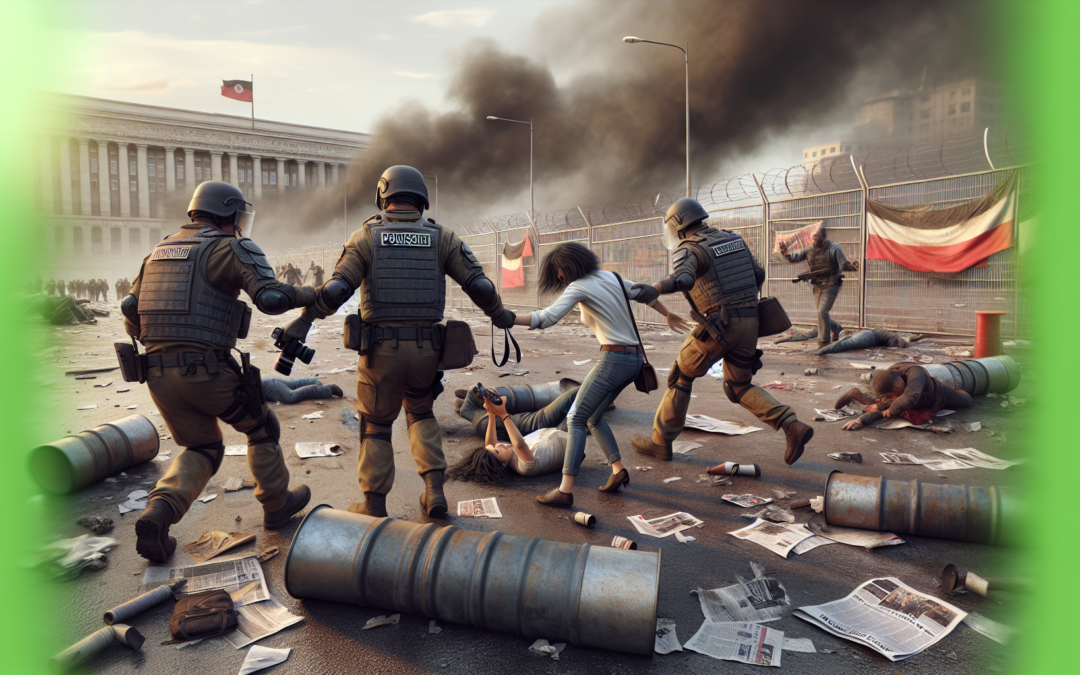The Crucial Role of Law Enforcement: A Lens into the Incident with Press NH Now at Springfield
Law enforcement officers, often caught in the crosshairs of public scrutiny, confront daily battles to protect community peace and safety. These brave men and women don the uniform not simply to enforce laws but to safeguard neighborhoods, upholding the fundamental rights that our great nation cherishes. In light of recent trends toward devaluation of their roles, it’s vital to comprehend the pressures they face, compelling us to revisit the incident involving the auditor group Press NH Now at Springfield.
The Incident: A Snapshot
On the otherwise ordinary day, Press NH Now, a self-proclaimed auditor group, sought to test the boundaries of police procedures under the guise of exercising their First Amendment rights. These individuals record interactions, often instigating confrontations, with law enforcement in the name of transparency. What unfolded in Springfield is a resonant example of both the expectancy laid upon our policing agencies and the constant provocation they face.
Footage from the event illustrates a calculated attempt to needle officers already grappling with substantial challenges. With cameras rolling, the Press NH Now contingent crossed the line from civic oversight to disruptive interference, creating a volatile atmosphere. The group’s continuous pressure ultimately compelled a necessary, reactive response from the officers involved. While some see these actions as an abuse of power, understanding the acute stress police endure shifts the narrative to a more balanced perspective.
Realities of Policing: Stress and Sacrifice
Every call officers respond to, every stop they make, and every interaction they encounter carries with it unpredictable variables. From domestic disputes to armed confrontations, the stakes are always high. Officers don’t have the luxury of time to contemplate the ideal course of action — their decisions are instantaneous and oftentimes life-preserving. The physical and psychological demands are staggering, and incidents like the one at Springfield showcase the extremities of split-second decision-making.
Being at the receiving end of escalating hostilities can take a toll on even the most veteran officer. Situations where civilians seek confrontation unnecessarily tax finite resources and emotional resilience. It’s essential to remember that these encounters aren’t scripted — no amount of training can predict the reflexes needed for every potential scenario. As these fractious exchanges escalate, the absence of respect for the uniform becomes painfully evident, undermining the authority essential for preserving societal order.
Upholding Order: A Tightrope Walk
Law enforcement’s pivotal role is to preserve the rights bestowed upon citizens while holding firm against unruliness. It’s a delicate balance requiring continuous calibration, and incidents like Springfield’s only strain this equilibrium. While it’s the duty of law enforcement to remain professional, repeated provocations risk eroding their composure.
The officers in Springfield acted in tandem with policies designed to mitigate chaos. Commands were issued and protocols followed to de-escalate a situation specifically manufactured for conflict. The reflexive arrest of infiltrators pushing legal and physical boundaries was consequently within procedural legitimacy. Critics hasten to levy accusations of bias and call for transparency, seldom realizing the transparency they demand was clouded by the instigators’ own inflammatory tactics.
Moving Forward: Societal Support
Supporting our law enforcement isn’t merely about upholding authority but defending the thin blue line that divides order from anarchy. It demandways to genuinely understand their struggles and honoring their unwavering commitment to public safety. Civil discourse around incidents like Springfield’s must hinge on imparting respect and reinforcing civic policies designed to protect both officers and citizens alike.
Advocates for auditing must remember to approach engagements with integrity, devoid of preconceived intent to discredit or diminish. Such responsible action fosters mutual respect and constructively contributes towards a transparent society. As technology increasingly brings every policing moment into the public eye, society wields the powerful tool of perspective. We must align scrutiny with empathy, appreciating the aspirational quest for a lawful, harmonious coexistence.
Conclusion
Instances such as the Springfield encounter with Press NH Now merit reflection not merely on policing methods but on the broader societal pillars that support law enforcement. In seeking transparency, the narrative should uplift the fundamental principles guiding our officers’ dutiful service.
Join us in exploring these courageous stories more deeply and expressing our solidarity with undersung heroes. Engage with The John Ligato Show through YouTube and Facebook, and be a part of the movement advocating for a better, safer tomorrow.

Recent Comments